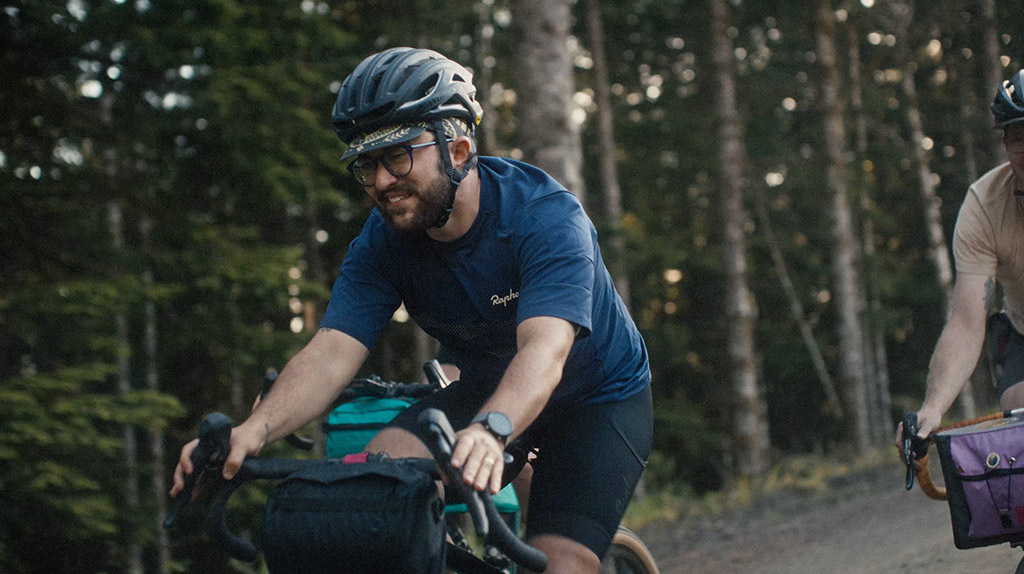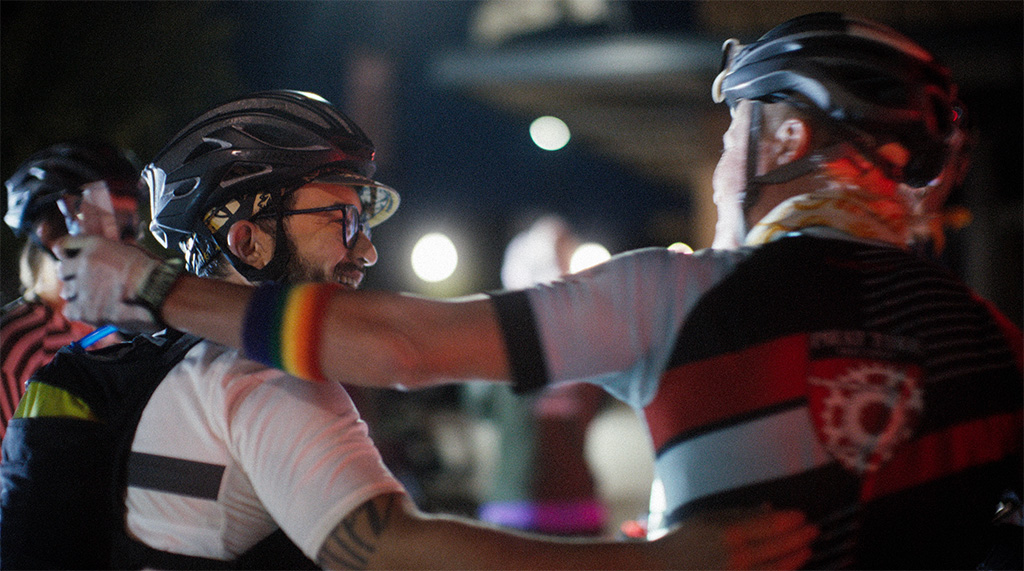The rhythmic sound of the tires against asphalt or gravel, the whoosh of air against your face, the feeling of fluidity and sheer freedom—for many of us, there is simply nothing quite like the pure joy that comes from riding a bike.
For Izzy Sederbaum, cycling is “more than just fun.” It’s a way for him to feel grounded and whole, embodied inside himself. “I really loved team sports, but they just didn’t have this kind of freeing aspect the way that bikes did,” he told Shelby Stranger on the REI Co-op podcast Wild Ideas Worth Living. “The only way that I can explain it to people who don’t ride is I think it’s for me the closest thing to achieving mindfulness.”

Sederbaum rode bikes as a kid, enjoying the liberation of being able to explore his neighborhood on his own; in college, he discovered a love for bike racing and started going everywhere on two wheels. It seemed like nothing—not even the time he was hit by a car while riding—could keep him off the pedals. He always found his way back, cranking toward that sweet feeling of freedom.
Several years ago, however, a single incident threatened to change all of that forever.
In May of 2018, Sederbaum and a new friend were biking outside of Seattle when they were attacked by a cougar. Sederbaum was badly injured but was able to rush to get help; unfortunately, his friend didn’t survive the attack. The tragedy made international news, in large part because it was the first time in nearly a century that a cougar had attacked human beings unprovoked in Washington state.
The freedom Sederbaum felt in the saddle suddenly vanished, replaced by anxiety, survivor’s guilt and, on top of everything else, the heartbreak of receiving hateful messages and comments about how the pair didn’t belong in the outdoors as two transmasculine people.
The barrage of blowback he read in the comments sections of article after article about their experience threatened to keep him off his bike for good. “In reading all that and absorbing it, you do start to feel like, ‘Oh, maybe I did deserve this,’” he says. “There is more damage caused from perpetuating this idea that we didn’t know what we were doing and we were trans, ergo trans people don’t belong in the outdoors … that feels more damaging, actually.”
That type of discrimination against lesbian, gay, bisexual, transgender and queer people is unfortunately all too common: Nearly two-thirds of LGBTQ+ folks in the United States say they have experienced harassment and/or discrimination, even when recreating outside. While U.S. civil rights laws protect people from discrimination on the basis of race, color, national origin, sex, disability and religion, they don’t protect people from discrimination based on sexual orientation or gender identity.
One way to increase protections for LGBTQ+ people recreating in the outdoors is to pass The Equality Act. This bill would amend existing civil rights laws to protect LGBTQ+ people from discrimination in multiple areas including employment, housing and education, as well as in environments where they may seek recreation, exercise, amusement or gathering. It passed the House of Representatives with bipartisan support February of 2021 and needs to pass in the Senate before President Biden can sign it into law.
Back Out There
Sederbaum’s own road to recovery was long, but he was determined to stay on it. “My body for the longest time would immediately go into that fight or flight,” he says. “Hearing branches break or rustling definitely sets that off.” He sought out other cyclists and began to find comfort in riding with friends. Eventually, he was ready to try to continue the work that was especially close to his late friend’s heart: advocating for inclusion and change within the cycling world.

“There is just a sense of unadulterated joy that I cannot reproduce doing anything else.”
Izzy Sederbaum
Today, Sederbaum is the co-director of Wild Composite Racing, a gender-expansive team of gravel and longer-distance racers. He works with race directors to ensure that they’re inclusive of trans and nonbinary racers and allies to women, Black, and Indigenous riders as well as cyclists of color.
“There is a level of liberation that you can find with bikes,” Sederbaum says, and he wants to make sure that all people have a chance to find it—especially those who have historically been denied that feeling of freedom.
Learn more about Wild Composite Racing by visiting the team’s Instagram page @wild.composite.racing.

